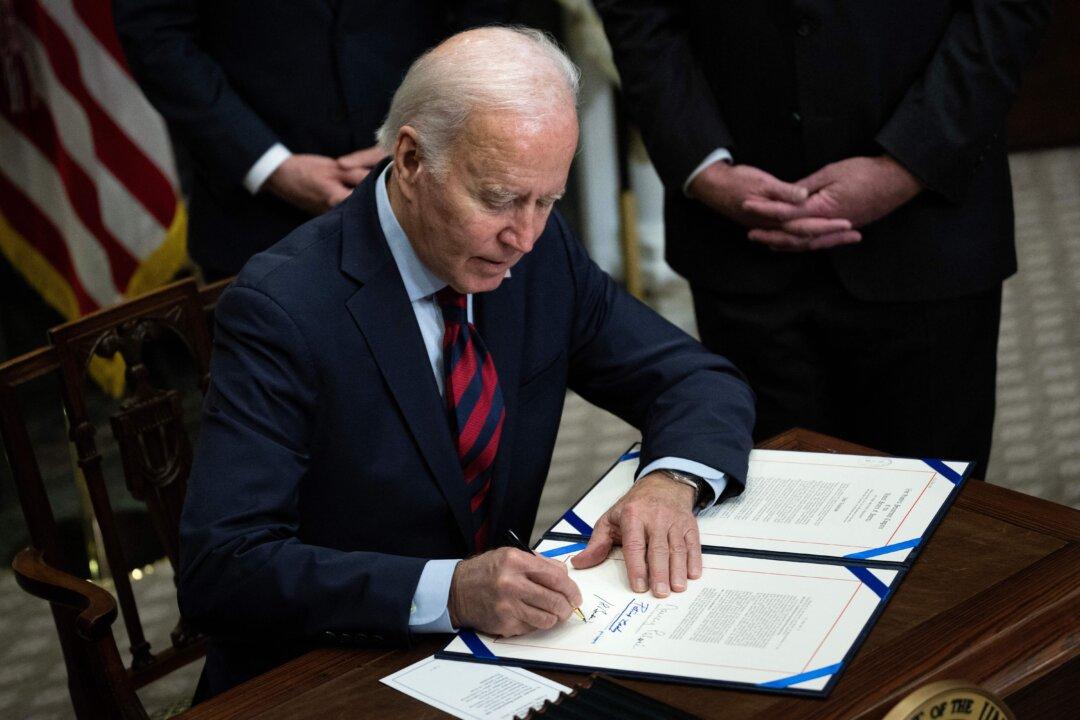President Joe Biden on Dec. 2 signed legislation that forces rail unions to adopt an agreement, averting a strike by rail workers.
“I know this was a tough vote for members of both parties, it was tough for me,” Biden said before signing the bill. But, he added, he believed it was the right thing to do at the moment.





